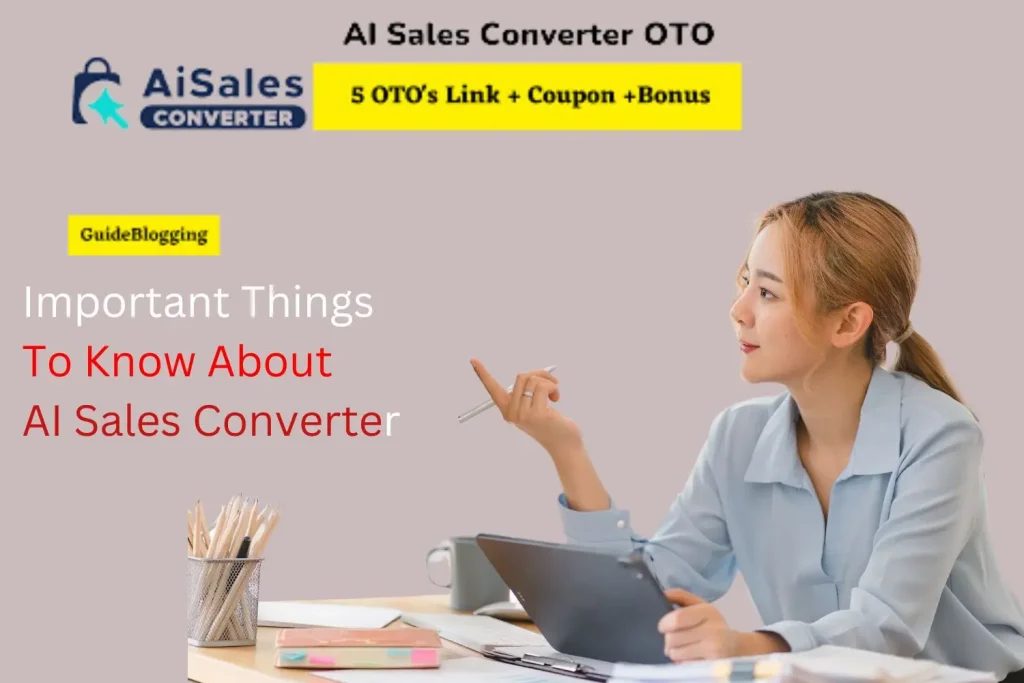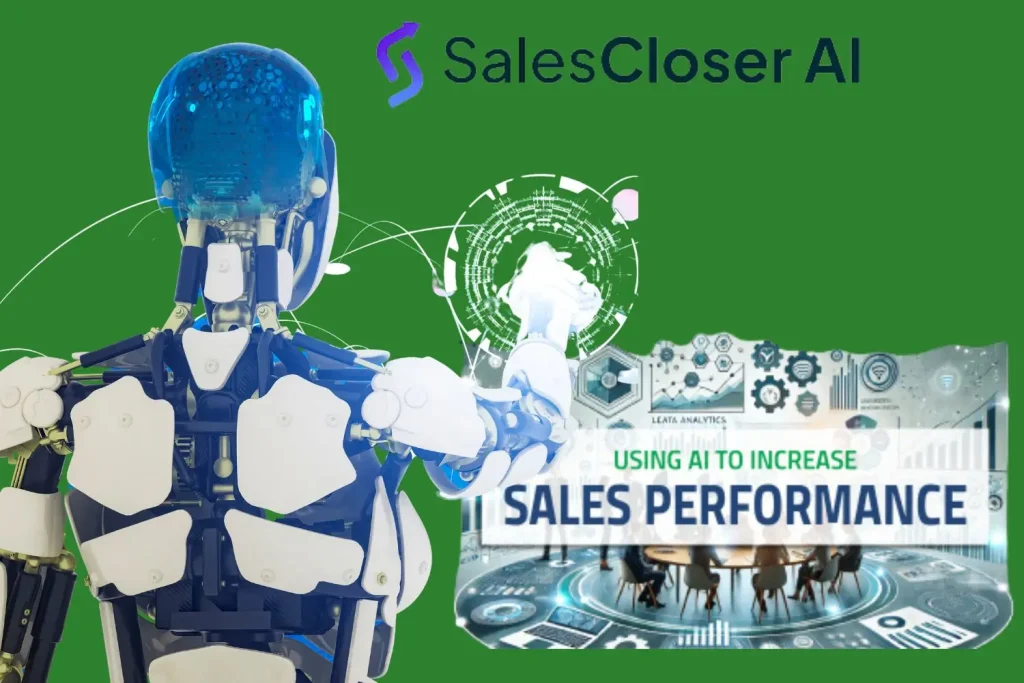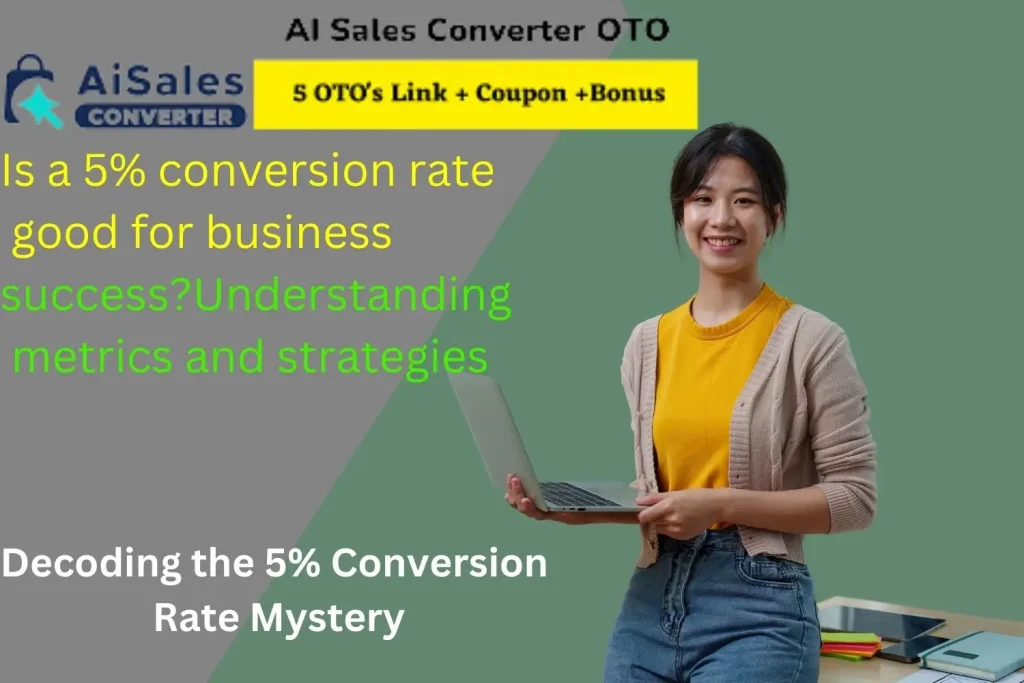What does the AI Sales Converter do?
A solution that helps enhance and speed up the process of sales through the use of artificial intelligence is the AI Sales Converter. It explores consumers’ data, behavior, and interaction in an attempt to discover potential leads, improve the sales strategy, and increase the conversion rates. It supports the sales teams in the focused opportunity management by covering certain automation parameters such as lead scoring, custom messaging, and follow-ups.
Furthermore, due to the analysis by AI, the possibility of successful sales and the configuration of the message according to the clients’ expectations are also raised. Lastly, the AI Sales Converter ensures better and more informed decisions along the sales funnel, charge generation, and better revenue.

In what ways does the AI Sales Converter enhance the specific rates of conversion on sales?
Using high-level consumer data analysis, the AI Sales Converter is able to automatically identify more probable buyers so as to improve conversion rates depending on particular consumer behaviours. By automating the lead scoring process, the sales teams may focus on the potential best leads. The use of the AI increases audience interest and strengthens the association with customers, as messages and interactions are delivered based on their interests and prior interactions.
Furthermore, it can predict the optimal interval and mode of follow-up, thereby optimizing response level. Moreover, the provided data is real-time, and that means that salespeople can change the direction of their actions and conclude agreements more effectively. Finally, this approach improves the overall conversion rates as a result of the methodology used.
Can AI Sales Converter be integrated with the current CRM systems?
Current Sales Converter can also be connected to currently used CRM solutions. Many AI Sales Converter technologies are designed to be easily integrated with some of the widely used CRM solutions, Microsoft Dynamics, Salesforce, and HubSpot. This interface will afford direct access of sales teams to real-time updates and lead scores as well as customer behaviours, optimally positioned in the CRM environment due to this integration. The integration of AI-driven analysis with CRM capability can help the businesses enhance their overall productivity to automate the processes and enhance their sales strategies; however, there will be continuity in the present sales processes.

Which companies will benefit the most from the use of an AI sales converter?
Thus, the decision to use an AI sales converter may bring benefits in various types of activities for those industries that have major contractors or the complex system for selling products or services. Certain industries will benefit most from the plan; they include e-commerce companies, real estate industries, banking industries, technology industries, and SaaS industries. These sectors require using AI-driven solutions for lead scoring and follow-ups because they generate significant quantities of leads, customers, and communication points.
It can also be used by businesses who want to convert more clients and can also use the volumes of data collected to expand their sales force by automating repetitive tasks and optimizing sales strategies. Through the incorporation of the AI Sales Converters into these particular CRM systems, both B2B and B2C businesses—especially those having long sales cycles or many decision-makers—will significantly note improved efficiency and overall revenue.
Does AI Sales Converter create unique sales scenarios for each of its consumers?
In fact, an AI sales converter could utilize other customer info, inclinations, and conducts to simulate disparate sales scenarios for each client. Of particular concern is the application of machine learning algorithms to make sales approaches specific to the needs of the customer by the AI system. Based on the data of prior communication, prior sales, and engagement history, it is able to forecast which is the most effective sales approach.
For instance, it can design messages relevant to the customer, suggest products or services to offer, or determine when to consume the customer’s time. This way, catering for each of these specific concerns and desires, this active, data-processing strategy not only leads to greater consumer interaction but also raises the likelihood of purchase. Last but not least, the AI Sales Converter helps the sales force create highly specific, context-based episodes that would increase efficiency and opportunity-closing effectiveness.

How does AI Sales Converter manage and interpret client data?
AI sales converters have informed preconfigured generic algorithms and trading ‘intelligence,’ retrieving, sifting, and analysing consumer data gathered from social media interaction, e-mail exchanges, CRM, and website browsing history. The AI then goes through such information to identify patterns and preferences in order to understand the needs and actions of customers. It favors differentiated approaches to selling because the company can sort out its clients based on factors such as age, previous buying behavior, and previous interaction.
Decision-makers can focus on high-value clients because the AI can rank leads, score prospects, and predict future buying behaviors. Real-time data makes it easier to adapt the approach to outreach constantly. By learning from new data, it becomes more accurate in its handling of client data in that it guarantees efficient processing of this information in the sales process to provide customized analytics for decision-making.
AI Sales Converter Conclusion?
In conclusion, it is safe to state that new possibilities of sales conversion as a method of companies’ development are opened by AI-powered tools. Firms may obtain higher conversions, target specific clients, and adjust their approach to sales by using automation, advanced data, and learning tools. These valuable tools help towards creating a more efficient and effective form of sales process, allowing sales departments to target important clients, control behaviours among customers, and reply on time.
It is a strategic resource for firms that need to keep up with growing amounts of information in highly competitive environments. And as it grows, that ability to predict trends and fine-tune sales approaches will only improve. The use of AI technologies is not only the current trend of enhancing sales but also the key to a long-term successful future.

Table of Contents